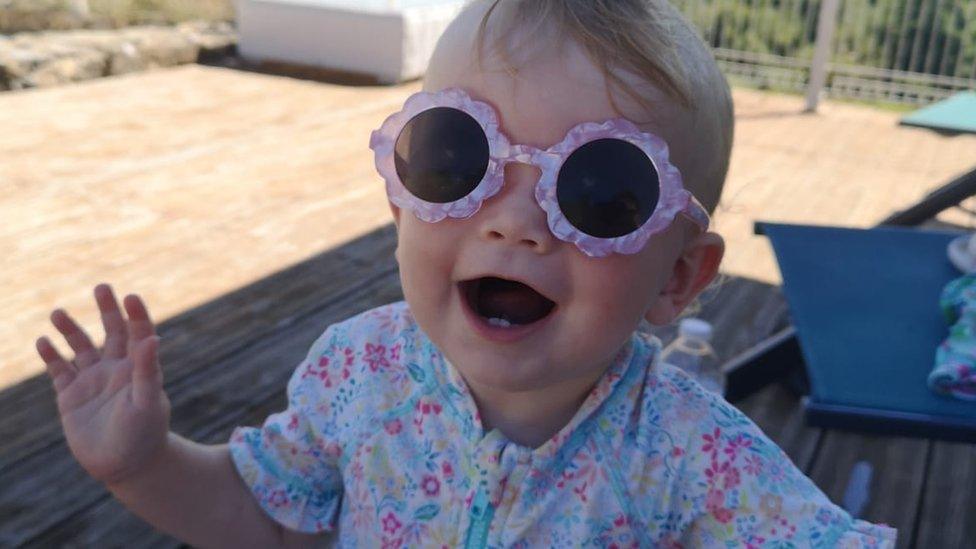Kaftrio: Parents fear loss of cystic fibrosis 'miracle drug'
- Published
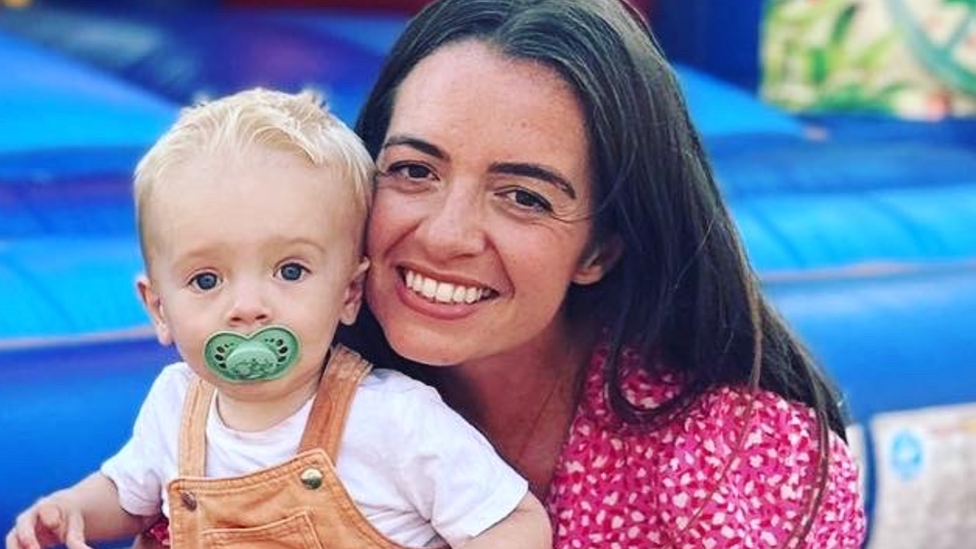
When Charlie was diagnosed with with cystic fibrosis Chloe was told about Kaftrio's benefits
Parents of young children with cystic fibrosis have been sharing their fears about being denied access to a new "miracle drug".
In draft guidance, National Institute for Health and Care Excellence (NICE) experts have said Kaftrio costs too much to be offered on the NHS.
A four-week consultation, external will decide whether it should still be prescribed.
But parents fear without it their children will not lead the "normal lives" they were promised at birth.
More than 10,000 people in the UK have cystic fibrosis, an inherited condition that causes sticky mucus to build up in the lungs and digestive system.
Kaftrio significantly improves lung function, helping people with cystic fibrosis to breathe more easily and enhancing their overall quality of life.
Earlier this month NICE published a draft evaluation of the medication and two others - Orkambi and Symkevi.
A committee found while they were clinically effective treatments, they were too expensive to be recommended for use on the NHS.
Once the consultation concludes, a decision will be made on whether they should continue to be offered to patients.
Those already taking the drug will be able to continue taking it regardless of the outcome of the consultation.
Children being treated for cystic fibrosis by the NHS are often moved onto Kaftrio when they reach the age of six.
The drug has now been classed as safe for children aged two or older but for those yet to start it, it is not known if they ever will.
'Miracle drug'
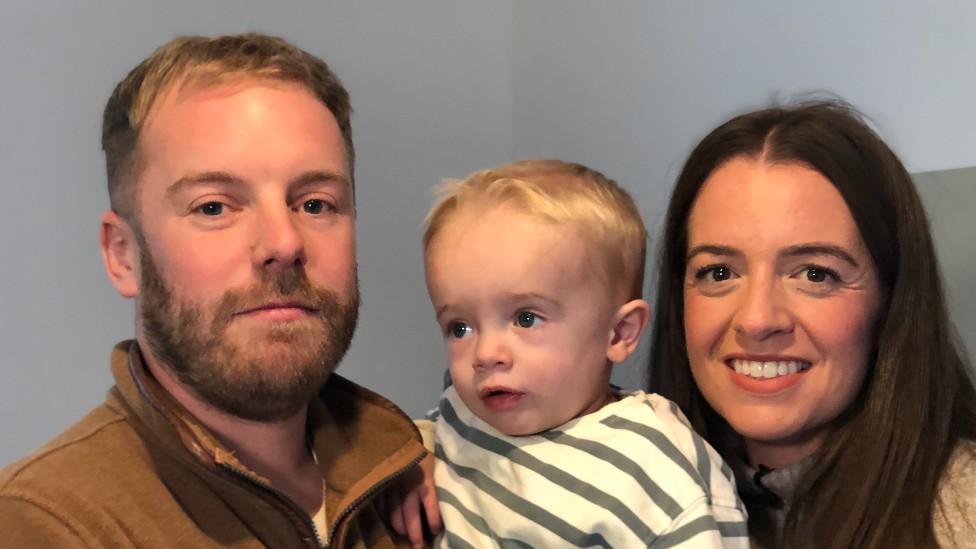
Cystic fibrosis is an inherited condition that causes sticky mucus to build up in the lungs and digestive system
Chloe and her husband Stefan, from Melbourne, Derbyshire, said they were "absolutely heartbroken" when they were told their son Charlie had cystic fibrosis.
"We just didn't see if coming," Chloe said.
"The doctors reassured us there was this miracle drug now for people with cystic fibrosis called Kaftrio."
Now aged 15 months, Chloe had been hoping Charlie would be able to take Kaftrio from his next birthday.
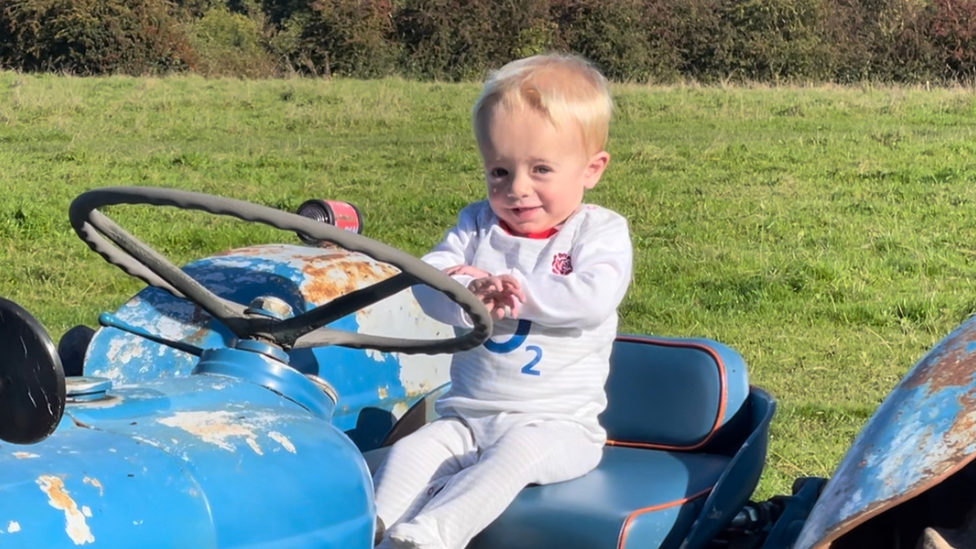
It had been hoped that Charlie would start taking Kaftrio from his next birthday
However, depending on the outcome of the consultation, he might not ever be eligible.
"It's just the sadness of knowing your child might not reach those older years," she said.
"I can't imagine him not living longer than us."
'Like diagnosis day again'
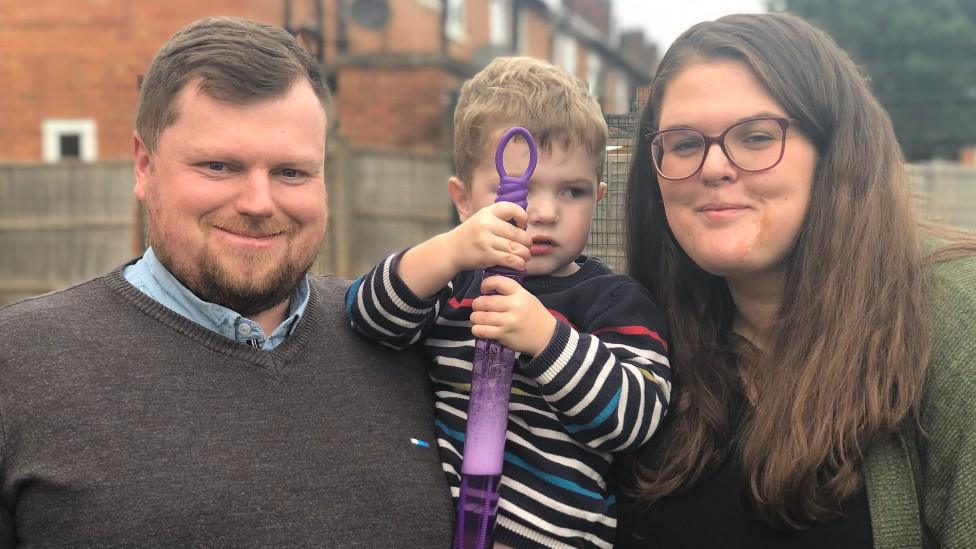
Jeremiah was expected to be moved onto Kaftrio when he turned six
Andy and Libby from Wigston, Leicestershire, were told their son Jeremiah had cystic fibrosis following a routine test as a newborn baby.
"It was almost like a black hole feeling, like we don't know what this is," said Andy.
"Nurses tell you there's a hope with these medications, they'll get a better quality of life and they'll live longer."
Jeremiah started taking Orkambi when he was two years old and Andy said it had made an "absolutely massive" difference.
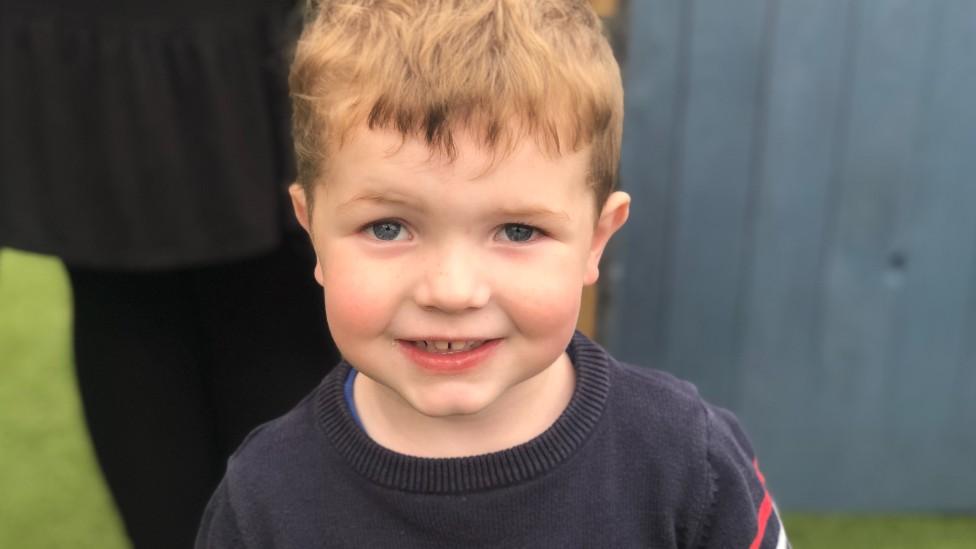
Jeremiah was diagnosed with cystic fibrosis when he was a baby
They were expecting Jeremiah to be moved onto Kaftrio when he turned six.
"That's the one that gives them a real chance at a normal life - they can be a normal person, a contributing citizen," Libby said.
Andy said they were now worried this might not happen.
"It feels like the diagnosis day all over again, the hope for Jem and his future is being lost," he said.
'I'm scared for him'
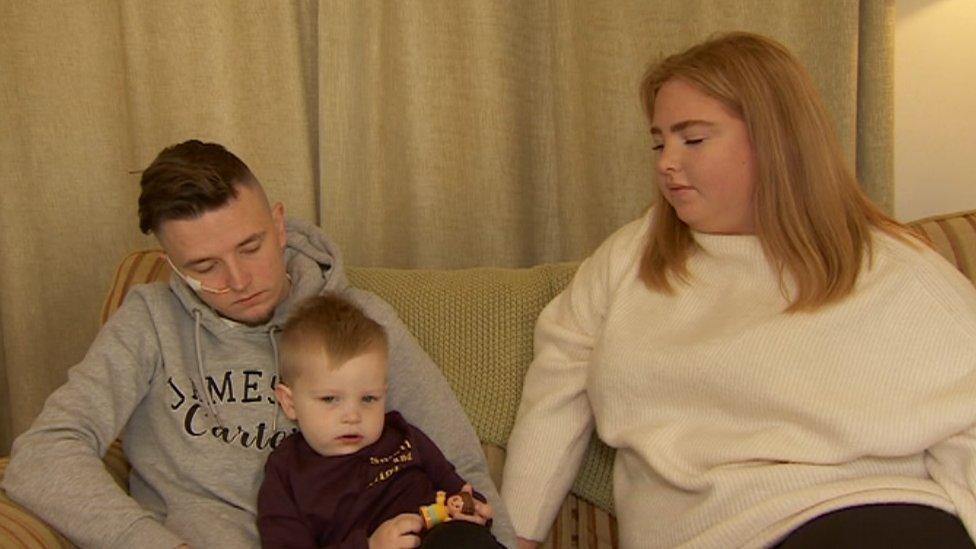
Harry said the family were in limbo when it came to treating Archie's condition
Harry and Alice's son Archie is two and a half years old, and also takes Orkambi.
Alice said: "Ever since he was diagnosed at three weeks old we were told that if there was ever a time to be diagnosed with cystic fibrosis it was now because there is this miracle drug that was Kaftrio.
"Now that's all been taken away from us - the hope that he was going to live a normal life.
"I'm scared for him."
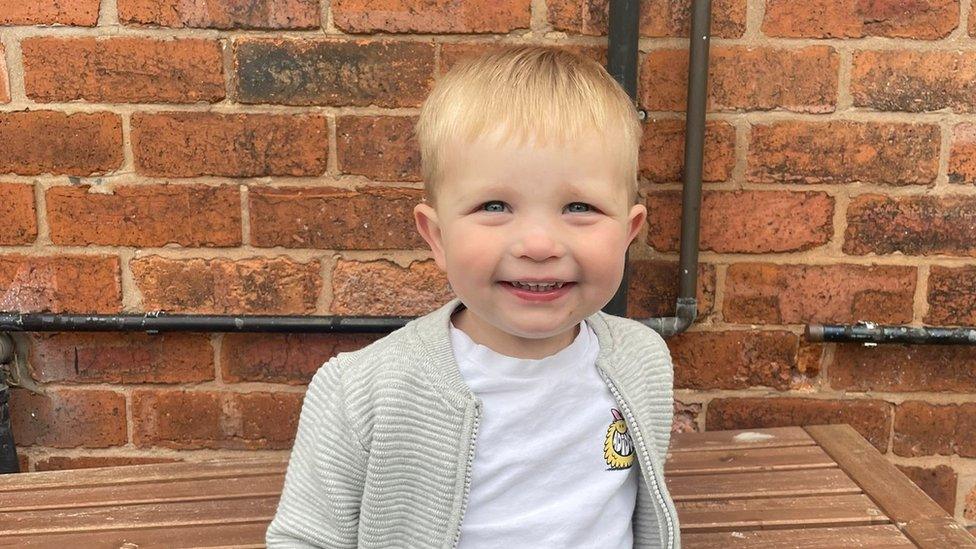
Cystic fibrosis symptoms usually start in early childhood and gradually gets worse over time
The family, from Blidworth, Nottinghamshire, were excited about Archie starting Kaftrio in the future.
Harry said taking that away would be unfair.
"I feel like we've almost been handed the carrot in one hand and it's been taken away in the other," he said.
"We're just left in a bit of a limbo of managing him when he could have something to make his life even better."

What is cystic fibrosis?
Cystic fibrosis is an inherited condition that causes sticky mucus to build up in the lungs and digestive system.
It can cause lung infections and problems with digesting food.
Symptoms usually start in early childhood and vary for each individual but the condition gradually gets worse over time, with the lungs and digestive system becoming increasingly damaged.
There is no cure for the condition but a range of treatments can help control symptoms and reduce complications.
Currently, about half of people with cystic fibrosis will live past the age of 40. Children born with the condition nowadays are likely to live longer than this.
Source: NHS

Dr Nigel Ruggins is a consultant paediatrician in Derby who has worked with children who have cystic fibrosis for about 30 years.
"Year-on-year there have been improvements in the treatment and the management of these children but the introduction of Kaftrio has really been a step up," he said.
"It's really the first example of actually tackling the underlying problem with cystic fibrosis, which is a genetic condition, rather than treating the consequences or the symptoms."

A final decision on the treatment will be reached following a four-week consultation
Mr Ruggins said using the "game-changer" drug from an early age gave children with cystic fibrosis the best possible chance of living a normal life.
"In my time in running the clinic I've had six of my CF patients die and I've had three that have gone on to have lung transplants," he said.
"I know that if they'd had access to these treatments this would not have been the outcome for that child and that family."
NICE said an independent committee was looking into the clinical and cost effectiveness of using Kaftrio.
It said the review was "very much in the consultation stage".
Helen Knight, from NICE said: "We are evaluating the cost-effectiveness of these cystic fibrosis medicines to ensure that taxpayers continue to get value for money."
She said it was working with organisations, including NHS England and the Cystic Fibrosis Trust.

Follow BBC East Midlands on Facebook, external, on X, external, or on Instagram, external. Send your story ideas to eastmidsnews@bbc.co.uk.
Related topics
- Published13 November 2023
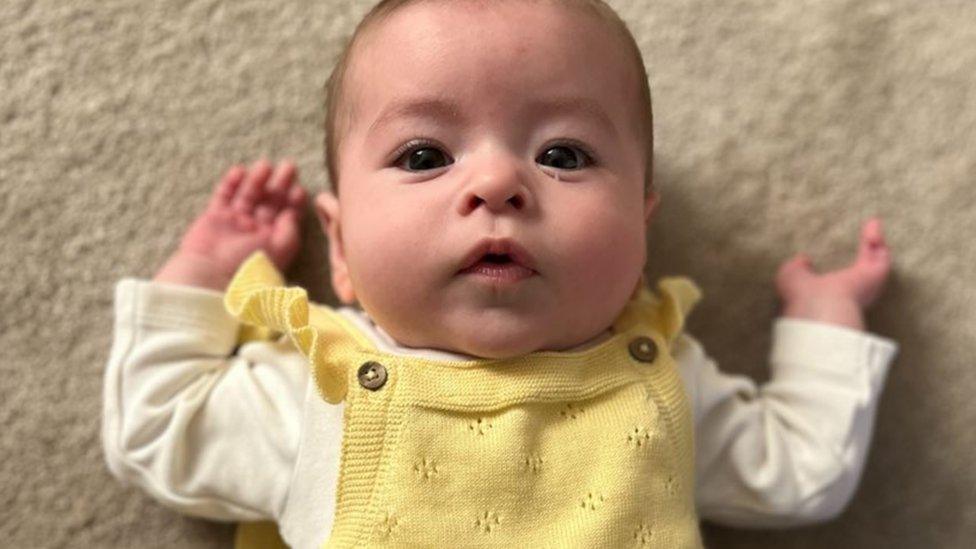
- Published10 November 2023
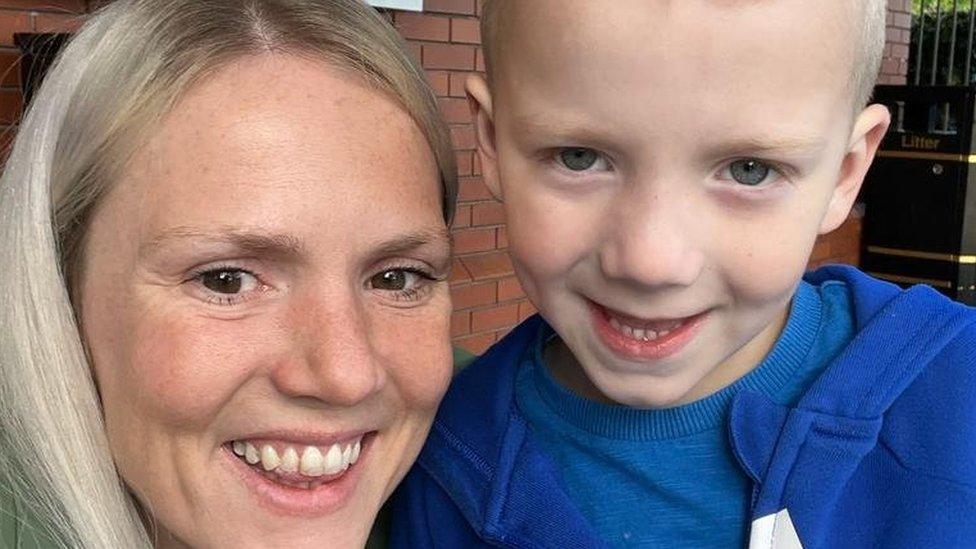
- Published10 November 2023
